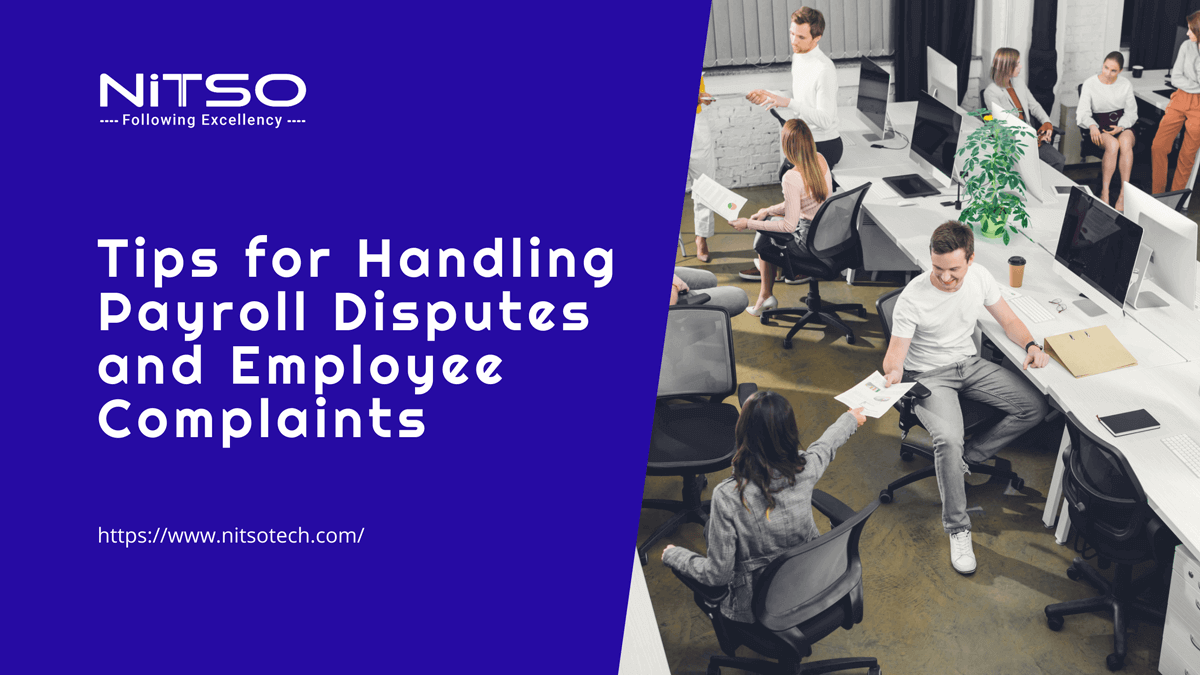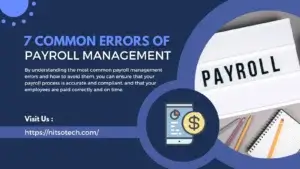As an employer, it is your responsibility to handle payroll disputes and employee complaints effectively. These situations can be stressful for both the employee and the employer, but they need to be addressed promptly and efficiently to avoid legal issues and maintain a positive work environment. In this article, we will provide you with the essential steps to handle payroll disputes and employee complaints with ease.
Table of Contents
Create an Open Communication Policy
Open communication is the foundation of a healthy and productive work environment. As an employer, it is essential to create an open-door policy that encourages your employees to come forward with any issues they may have. This policy will help you address any problems before they escalate into formal complaints. Here are some tips for creating such a culture:
- Encourage employees to speak up by making it clear that their opinions are valued
- Set up regular check-ins with employees to address any concerns they may have
- Consider setting up an anonymous feedback system, such as a suggestion box or an online survey
- Lead by example and be open and transparent with employees about company policies and decisions
Document Employee Complaints
When an employee brings a complaint to your attention, it is essential to document it. This documentation should include the date of the complaint, the employee’s name, a description of the issue, and any actions taken to resolve it. Documentation will help you track the complaint’s progress and protect you from any legal claims that may arise in the future. Here are some tips for documenting complaints effectively:
- Create a standardized form for employees to fill out when they file a complaint
- Document the date and time the complaint was received, the details of the complaint, and any actions taken
- Keep all documentation in a secure location
Investigate the Complaint
Once you have received a complaint from an employee, it is essential to investigate the issue promptly. Talk to the employee and any witnesses involved to gather all the necessary information. This investigation will help you determine the facts of the situation and identify any possible solutions. Here’s how to conduct an effective investigation:
- Interview all parties involved in the complaint, including any witnesses
- Gather any evidence that may be relevant to the complaint, such as emails or text messages
- Keep all information confidential to protect the privacy of those involved
Address the Complaint
After investigating the complaint, it’s time to address it. Depending on the situation, there may be multiple solutions available. You should discuss the potential solutions with the employee and work together to find the best option for everyone involved. Once you have agreed on a solution, document it, and ensure that it is implemented promptly. Here’s how:
- Meet with the employee who filed the complaint and discuss the findings of the investigation
- Take steps to resolve the issue, such as reassigning duties or implementing new policies
- Follow up with the employee to ensure that they are satisfied with the resolution
Follow-Up on the Complaint
After you have addressed the complaint, it is essential to follow up with the employee to ensure that the issue has been resolved satisfactorily. This follow-up will help you identify any further actions that may be necessary and prevent the issue from resurfacing in the future. Here are some tips for following up effectively:
- Schedule a follow-up meeting with the employee to discuss how they feel about the resolution.
- Take any necessary steps to ensure that the issue doesn’t happen again in the future.
- Show appreciation for the employee’s feedback and encourage them to continue to come forward with any concerns they may have
Retaliation and Terminations
It’s important to avoid retaliation and terminations related to employee complaints, as this can result in legal consequences. Here’s how to avoid these issues:
- Never retaliate against an employee who has filed a complaint
- Ensure that all termination decisions are made for legitimate reasons and not as retaliation for a complaint
Be Transparent
Transparency is crucial when you handle payroll disputes and employee complaints. Ensure that your employees understand the processes for resolving issues and the timeline for doing so. Being transparent will help your employees feel valued and appreciated and foster a positive work environment.
Seek Professional Help if Necessary
Sometimes, despite your best efforts, you may be unable to resolve a complaint or dispute. In such cases, it is advisable to seek professional help. There are various professional services available that can help you resolve issues and maintain a positive work environment.
Conclusion
In conclusion, handling payroll disputes and employee complaints is an essential part of being an employer. By creating an open communication policy, documenting complaints, investigating issues, addressing complaints, following up, being transparent, and seeking professional help if necessary, you can resolve issues effectively and maintain a positive work environment. Remember to involve HR professionals when necessary and to ensure that your employees feel comfortable bringing forward complaints. By doing so, you can create a workplace that is fair, equitable, and productive.
Related Articles:
- 7 Common Payroll Management Errors and Tips to Avoid Them
- Maximizing Productivity with Employee Screen Monitoring Software
- The Importance of Confidentiality and Data Security in Payroll Management
- Employee Retention and Attracting in a Competitive Job Market: Strategies for HR Professionals
Frequently Asked Questions
What are the common reasons for employee complaints?
Common reasons for employee complaints include issues with pay, work hours, discrimination, harassment, and unsafe work conditions.
What is the difference between a payroll dispute and an employee complaint?
A payroll dispute typically involves an issue with an employee’s salary or wages, while an employee complaint can relate to a range of issues, including pay, work conditions, discrimination, or harassment.
How can I prevent employee complaints?
You can prevent employee complaints by creating a positive work environment, ensuring that your employees are treated fairly and equitably, and implementing open communication policies.
What should I do if an employee files a formal complaint?
If an employee files a formal complaint, you should investigate the issue promptly and thoroughly, document your findings, and take appropriate action to resolve the issue.
Can I terminate an employee who has filed a complaint against me?
No, it is illegal to terminate an employee for filing a complaint against you. This would be considered retaliation, which is prohibited under employment law. If you terminate an employee who has filed a complaint, you could be subject to legal action.
What if the employee is not satisfied with the resolution of their complaint?
If an employee is not satisfied with the resolution of their complaint, you should encourage them to come forward and discuss their concerns further. It may be necessary to involve a neutral third party, such as a mediator or an employment lawyer, to help resolve the issue.
How long do I have to respond to an employee’s complaint?
As an employer, you should respond to an employee’s complaint as soon as possible. The longer you delay, the more likely the issue is to escalate and the more difficult it will be to resolve.
Can I handle employee complaints on my own, or should I involve an HR professional?
It is always advisable to involve an HR professional when handling employee complaints. HR professionals are trained to handle these situations, and they can provide valuable guidance and support.
How can I ensure that my employees feel comfortable bringing forward complaints?
To ensure that your employees feel comfortable bringing forward complaints, you should create a culture of open communication and transparency. You should also ensure that your employees are aware of their rights and the processes for filing complaints.
What should I do if an employee files a complaint against another employee?
If an employee files a complaint against another employee, you should investigate the issue promptly and impartially. It may be necessary to involve an HR professional to ensure that the investigation is fair and unbiased.








0 Comments